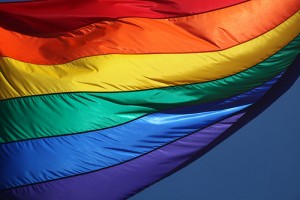What is Fair? The Fair Housing Act Does Not Protect the LGBT Community
August 14th, 2016

Change may be on the way for discriminatory, anti-LGBT housing practices.
The Fair Housing Act was enacted by Congress in 1968 as Title VIII of the Civil Rights Act. The Fair Housing Act was promulgated in response to the civil rights movement and originally mandated that neither landlords nor sellers could discriminate against renters or potential buyers on the basis of race, color, religion, sex or national origin. 20 years later, the Act was amended to protect familial status as well as people with disabilities. Penalties for violating The Fair Housing Act can total up to $150,000 in civil fines.
Despite the inclusive intent of the Fair Housing Act, in 2016 we still do not see the lesbian, gay, bisexual and transgender community falling under the full protective mandates of the law when it comes to housing equality.
Pending Lawsuit Alleging Violation of Fair Housing Act
The U.S. Department of Housing and Urban Development (HUD) specifically states that the Fair housing Act does not protect the LGBT communities in the same way that it protects the specific classes of citizens discussed above. Additionally, HUD notes that discrimination because of HIV/AIDS is illegal.
HUD notes, however, that if the discrimination against an LGBT individual results from nonconformity with gender stereotypes, then the individual may have course of action via the Fair Housing Act. For example, a landlord cannot ask a transgender individual to dress in clothing deemed appropriate for that person’s apparent biological gender.
Although currently, the Fair Housing Act does not specifically protect the LGBT community from discriminatory housing practices, change may be on the horizon. In January of this year, Tonya Smith and Rachel Smith filed suit in federal court alleging violation of the Colorado Anti-Discrimination Act as well as the Fair Housing Act. As HUD suggests, the two are claiming a potential landlord discriminated against them on the basis of gender, familial status, and gender stereotyping.
The Smiths have been married for five years and have two young children. They were approved initially by their potential landlord, but when she met the couple she ultimately decided that their “unique relationship” would become the “town focus.” Ultimately, she denied their application. Whether or not they will be successful in this legal matter remains to be seen.
The Fair Housing Act Indirectly Protects the LGBT Community, but is it Enough?
Although individual states and municipalities may enact their own anti-discrimination laws, which extend additional protection to vulnerable groups, many agree that housing discrimination remains a big issue for the LGBT community. Additionally, HUD has even provided studies showing that heterosexual complaints involving violation of the Fair Housing Act are more likely to receive attention than complaints made by same-sex couples. It seems that we may be on the verge of providing better legal remedies to those that identify as LGBT, but there is still a long way to go.
As the issues evolve, Universal Life Church will continue to monitor the progress made in both the courts and in the legislatures. Continue to check our legal blog for timely discussions on cases affecting LGBT groups and other constitutional matters.


